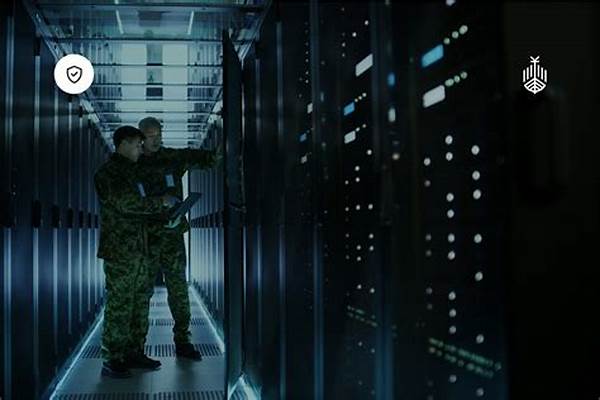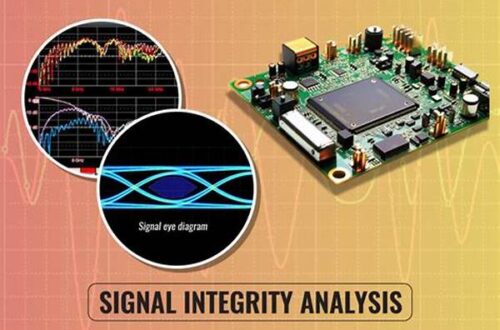In recent years, the field of quantum computing has garnered increasing attention as a transformative force across various sectors, including military strategy. Quantum computing, with its ability to perform complex calculations at unprecedented speeds, presents new opportunities and challenges for enhancing military capabilities. This article seeks to examine the role of quantum computing in reshaping military strategy and operations.
Potential Impacts of Quantum Computing on Military Strategy
Quantum computing represents a significant shift in how military operations can be executed and understood. The capacity to process vast amounts of data rapidly offers a strategic edge in decision-making and operations. With quantum computing, militaries can analyze complex scenarios more efficiently, enabling quicker response times in dynamic environments. This capability is particularly crucial in a world where information and technology rapidly evolve, necessitating a new approach to strategy and operations. Consequently, quantum computing for military strategy could enhance both defensive and offensive capabilities by offering insights that were previously out of reach. Moreover, adversaries’ actions and intentions can be more accurately predicted through advanced simulations, ensuring a proactive stance in security matters.
Furthermore, quantum computing for military strategy can revolutionize cybersecurity measures. As cyber threats grow in sophistication, traditional computing methods may struggle to keep pace. Quantum computing offers the potential to create more robust encryption methods, safeguarding sensitive data from potential breaches. The ability to develop and deploy advanced cryptographic techniques will be essential in maintaining the integrity and confidentiality of military communications. Introducing quantum computing into military operations also stimulates technological innovation, encouraging the development of new tools and techniques that can enhance the effectiveness and efficiency of defense systems.
Quantum Computing and Strategic Decision-Making
1. Quantum computing for military strategy enhances data analysis, allowing for more informed strategic decisions.
2. By processing large data sets, quantum computing facilitates a deeper understanding of complex global scenarios.
3. Military logistics can be optimized through quantum algorithms, enhancing supply chain and resource management.
4. Quantum computing aids in real-time decision-making through the rapid simulation of various operational scenarios.
5. The predictive capabilities of quantum computing support anticipatory actions, reducing vulnerabilities and enhancing security.
Implementing Quantum Computing in Military Systems
The integration of quantum computing for military strategy necessitates a comprehensive approach to both technological development and strategic adaptation. As nations race to harness this powerful technology, collaborative efforts between military agencies and technology providers are essential. These collaborations would not only enhance the technological capabilities but also ensure effective implementation within existing military structures.
Training programs will play a crucial role in facilitating the transition to quantum technologies. Military personnel will require skills and knowledge that encompass both traditional computing and advanced quantum systems. Empowering the workforce with the necessary expertise ensures that they can leverage quantum computing’s full potential. Furthermore, such implementation requires strategic investments in infrastructure and research initiatives to ensure cutting-edge technologies are developed and deployed effectively. As a result, quantum computing for military strategy becomes not just a technological upgrade but a catalyst for a broader transformation.
Challenges in Adopting Quantum Computing
1. The high cost of developing quantum computing technology poses significant budgetary challenges for military projects.
2. Ensuring compatibility between quantum systems and existing military infrastructure requires significant technical innovation.
3. Quantum computing for military strategy requires addressing ethical concerns related to surveillance and privacy.
4. The rapid evolution of quantum technology demands continuous updates and strategic recalibration.
5. International collaboration must be managed carefully to avoid potential security risks while fostering innovation.
6. Workforce development is essential to ensure personnel are proficient in both quantum computing and military applications.
7. Adapting to potential disruptions in traditional systems and strategies is necessary for effective quantum integration.
8. Protecting quantum systems from cyber threats presents new cybersecurity challenges.
9. The unpredictability of quantum outcomes necessitates robust failsafe measures.
10. Political and technological factors need alignment to maximize benefits from quantum computing for military strategy.
Enhancing Cybersecurity through Quantum Computing
The role of quantum computing in enhancing cybersecurity measures within the military cannot be overstated. As cyber threats become increasingly sophisticated, quantum computing provides an opportunity to redefine encryption standards. Quantum algorithms can potentially safeguard military communications by generating encryption keys that are virtually unbreakable, even by other quantum computers.
Moreover, quantum computing for military strategy offers the military sector unprecedented capabilities in detecting and neutralizing cyber-attacks. By rapidly analyzing vast datasets, quantum computers can determine patterns and anomalies indicative of a cyber threat. This rapid response mechanism is crucial for protecting sensitive military networks from breaches. As cybersecurity threats evolve, leveraging quantum computing’s processing power ensures that military defenses remain resilient against both current and emerging threats.
The Future Landscape of Military Operations
The advancement of quantum computing for military strategy heralds new possibilities in operational effectiveness. Quantum computing holds the promise of revolutionizing how armed forces conduct missions, manage logistics, and communicate securely. As nations develop their quantum capabilities, this transformation will shape the balance of power in international relations and redefine military strategies worldwide.
By integrating quantum computing into military strategy, forces can anticipate threats more effectively, formulate precise response plans, and execute operations with greater efficiency. However, this integration must be approached with caution, balancing technological advancements with ethical and strategic considerations. As we move forward, embracing the full potential of quantum computing will be essential for maintaining a competitive edge in the field of defense. This journey represents not only a technological shift but a strategic evolution, as militaries worldwide prepare for the next era of warfare.
Summary
Quantum computing for military strategy is poised to redefine the landscape of defense operations. By enhancing decision-making capabilities and bolstering cybersecurity measures, quantum computing offers unprecedented advantages in military strategy. The ability to process and analyze vast amounts of data rapidly transforms strategic planning and operational execution, allowing for a proactive approach in security matters. Furthermore, the integration of quantum computing into military systems demands careful consideration of ethical, technical, and strategic factors. Collaborative efforts, workforce development, and investment in infrastructure are essential elements in harnessing the full potential of quantum technologies.
As technological advancements continue, the role of quantum computing in military strategy will become increasingly pivotal. With the potential to revolutionize everything from encryption protocols to logistical operations, quantum computing opens up new dimensions of strategic possibilities. The future of military operations will undoubtedly be shaped by these innovations, demanding a balance of innovation and responsibility. Embracing this technological evolution will ensure that military forces remain agile and responsive in an ever-changing global landscape, where the only constant is change itself.





